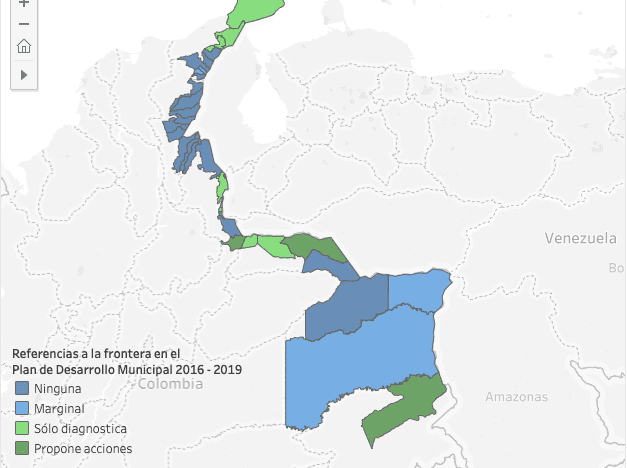
Most of the Colombian municipalities that share the border with Venezuela ignore the neighboring country in their development plans. That is the conclusion of a new book published by professors from the Universidad del Norte, located in Colombia’s largest port city Barranquilla.
Angélica Rodríguez, professor of Political Science and International Relations at the university, and co-author of the book Analysis of the Colombia-Venezuela Border, told news website La Silla Vacía that the municipal development plans for 2016-2019 of the 36 bordering municipalities do not involve any analysis, or establish any initiatives related to the volatile border region, which has long had vast swathes that are beyond the control of both Bogota and Caracas.
Although the development of these plans was undertaken prior to the outbreak of the Venezuelan humanitarian crisis in 2017, references to the problems that afflict the border are curiously sparse.
According to the research, the development plans are limited to describing, with varying degrees of detail, the situation on the border, and generally denouncing the problems generated by migration. Also, although they deal with land issues, they pay little attention to the maritime issues, despite the importance that they represent in terms of security for the two countries.
The vast majority of the lawless border region is conformed of various rivers: in the north near the city of Cucuta in Norte de Santander, it is the Rio Tachira, further south the border is composed of the Rio Arauca and the Rio Meta; then further to the east the final portion of the border is composed of the mighty Rio Orinoco and its two tributaries, the Rio Atabapo and the Rio Negro.
Very few of the bordering municipalities have added political, economic, and social proposals in their territories that seek to examine the effects of the strategic nature of their location along the border. In fact, only three municipalities have taken concrete action to do so.
At the same time, Professor Rodríguez said that her research shows that there are few municipal governments that know the benefits and legal tools available to them because of their proximity to the border region.
This year local and regional elections will be held in Colombia, and mayors and governors who are elected must take into account the migration situation faced by their populations.
The two nations share 2,219 kilometers of porous border, and are frequently confronted by organized crime groups, the so-called “bacrim”, and guerrillas that control borders, operating such lucrative enterprises as migrant trafficking, human trafficking, prostitution, child exploitation, and drug trafficking.
Colombia’s new president Ivan Duque has taken a hard line against his counterpart Nicolas Maduro. 19 nations of the Organization of American States (OAS), including Colombia and the United States, refused to recognize his inauguration as president yesterday. Duque, however, has taken an accommodating approach to keeping the border open, allowing Colombia to act as a major humanitarian release valve, with millions of Venezuelans streaming westward across the border over the past two years.
Duque has referred to Venezuelans as “our brothers” and called for the Colombian people to do their part in alleviating the humanitarian catastrophe. In both Colombia and Brazil, however, the situation has led to resentment on various levels: Colombian workers feel threatened by Venezuelan workers who will work for less, while schools and hospitals are flooded with penniless Venezuelans using public resources.
Maduro has repeatedly accused both Washington and Bogota, and now the right-wing government of Jair Bolsonaro in Brazil, of plotting to overthrow his regime. As the humanitarian crisis worsens, more governments will certainly feel pressured to take concrete measures to force Maduro from power.
Maduro has few regional or international allies, and is largely propped up by the Venezuelan military, which at least until now, has remained loyal to him.
 Versión Español
Versión Español













